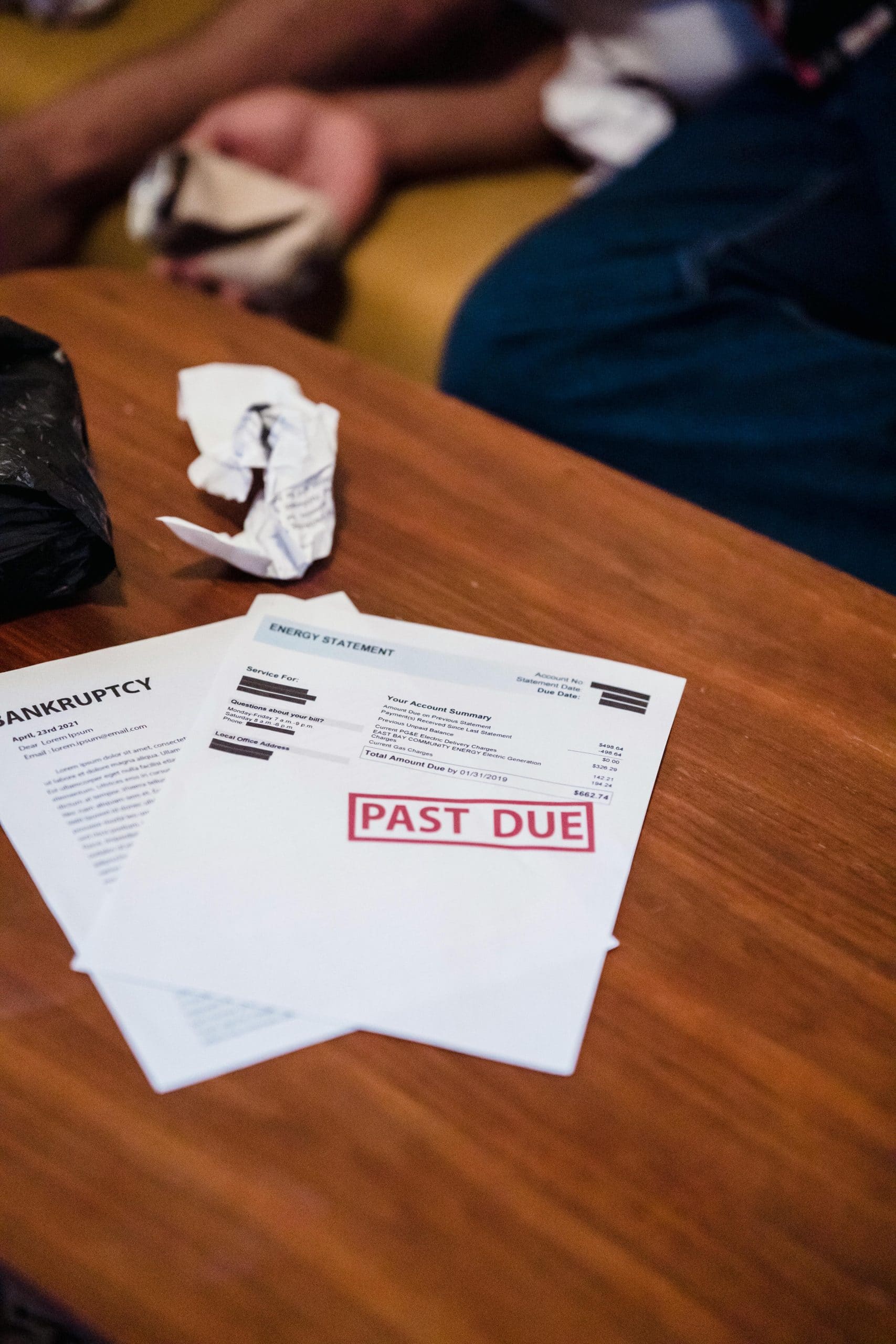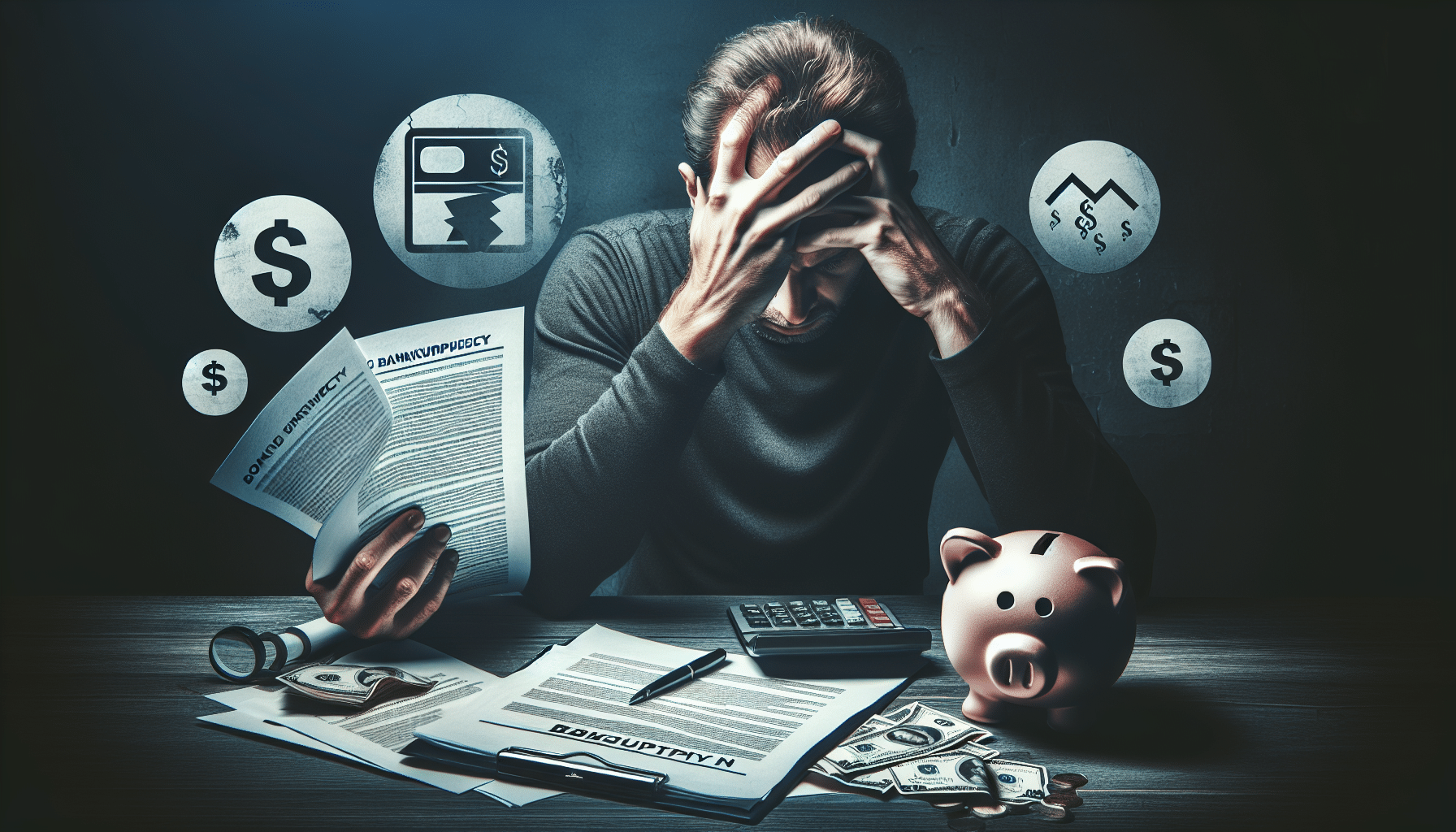Thinking about filing for bankruptcy? Before you make any decisions, it's crucial to consider a few key factors that will impact your financial future. Bankruptcy can provide a fresh start, but it's not a decision to take lightly. Understanding the consequences and evaluating the alternatives can help you make an informed choice. In this article, we will explore some essential factors you should consider before deciding to file for bankruptcy. From the types of bankruptcy to the long-term effects on credit, we'll guide you through the important considerations to help you navigate this complex decision.
Overview
Bankruptcy is a legal process that provides individuals and businesses with a fresh financial start when they are unable to repay their debts. It is a decision that should not be taken lightly, as it has long-lasting consequences for your financial well-being. Before considering bankruptcy, it is essential to understand the various aspects involved and carefully evaluate your financial situation.
Understanding Bankruptcy
Bankruptcy is a legal proceeding that allows individuals, families, and businesses to eliminate or restructure their debts. It provides a legal framework to help overwhelmed debtors regain control of their financial situation. By filing for bankruptcy, you are essentially declaring that you are unable to repay your debts in full. It is important to note that bankruptcy does not serve as a way to avoid financial responsibilities, but rather as a way to manage and address overwhelming debt.

This image is property of images.pexels.com.
Importance of Considering Key Factors
Before diving into the complex world of bankruptcy, it is vital to consider several key factors. First, assess your current financial situation. Understanding the extent of your debt, your income, and your expenses will help you determine if filing for bankruptcy is the right choice for you. Additionally, you need to be aware of the legal implications, the impact on your credit score, and the potential consequences for future loan applications. Considering these factors will help you make an informed decision and set realistic expectations for the bankruptcy process.
Financial Situation
Assessing your current financial state is a crucial step in determining if bankruptcy is the right path for you. Carefully review your debts, including outstanding loans, credit card balances, medical bills, and any other financial obligations. Evaluate your income and expenses to determine if you have enough resources to repay your debts or if you are drowning in a cycle of accumulating interest and late fees. Lastly, determine the severity of your debt by comparing it to your assets and assessing the potential impact on your long-term financial health.

This image is property of images.pexels.com.
Types of Bankruptcy
There are different types of bankruptcy, each serving different purposes and catering to specific financial situations. The most common forms are Chapter 7, Chapter 13, and Chapter 11 bankruptcy.
Chapter 7 bankruptcy, also known as liquidation bankruptcy, involves the sale of non-exempt assets to repay creditors. This type of bankruptcy is most suitable for individuals with little to no regular income and significant unsecured debts.
Chapter 13 bankruptcy, on the other hand, is a reorganization bankruptcy that allows individuals with a steady income to create a manageable repayment plan to satisfy their debts over three to five years.
Chapter 11 bankruptcy, primarily designed for businesses, offers a similar reorganization process to Chapter 13 but on a larger scale. It enables companies to continue their operations while developing a plan to repay creditors over time.
Legal Implications
Understanding the legal consequences of filing for bankruptcy is vital. While it may provide relief from overwhelming debt, it is essential to be aware of the impact it may have on your legal and financial future. Filing for bankruptcy may affect your ability to obtain credit, rent or purchase a home, or even find employment in certain industries.
One of the most significant legal implications of bankruptcy is its effect on your credit score. Bankruptcy will remain on your credit report for several years, making it challenging to obtain favorable interest rates on loans and credit cards. However, with responsible financial management, it is possible to gradually rebuild your credit over time.

This image is property of images.pexels.com.
Non-Dischargeable Debts
Not all debts can be eliminated through bankruptcy. It is essential to identify non-dischargeable debts, which will remain your responsibility even after the bankruptcy process is complete. Student loans, for example, are usually not dischargeable unless you can prove significant hardship. Similarly, tax obligations, child support, and alimony payments are typically not eligible for discharge, as these debts are considered high priority.
Bankruptcy Costs
While bankruptcy offers relief from overwhelming debt, there are costs associated with the process. The first consideration is attorney fees. Hiring a bankruptcy attorney is highly recommended, as they provide invaluable expertise and guidance throughout the process. Fees for an attorney can vary depending on the complexity of your case and the region you reside in.
Additionally, filing fees must be paid to the court when you submit your bankruptcy petition. These fees vary depending on the type of bankruptcy you are filing for, but they are a necessary expense in the process.
It is important to consider the additional financial burdens that may arise from bankruptcy. For example, if you have secured debts such as a car loan or mortgage, you may need to surrender the property to discharge the associated debt.

Long-Term Consequences
Bankruptcy can have long-term consequences that extend beyond the immediate relief from debt. One crucial aspect is rebuilding your credit after bankruptcy. While the process initially has a negative impact on your credit score, it is not irreversible. Responsible financial behavior, such as making payments on time and keeping debt levels low, can gradually improve your creditworthiness over time.
Another potential consequence is the effect on future employment prospects. Certain industries, such as finance or government, may scrutinize an individual's bankruptcy record when considering job applicants. However, it is important to note that bankruptcy does not automatically disqualify you from employment opportunities, and each situation is evaluated on a case-by-case basis.
Bankruptcy may also impact personal relationships, as it can be emotionally challenging for individuals and their families. It is crucial to communicate openly with loved ones about the decision to file for bankruptcy and to seek support during the process.
Alternatives to Bankruptcy
Bankruptcy is a significant decision, and it is worth exploring alternative options before proceeding. Debt consolidation is one such option, where you combine multiple debts into a single loan with a lower interest rate. Another alternative is debt settlement, where you negotiate with creditors to settle for less than the total amount owed. Credit counseling is also an alternative to consider, as it provides guidance on managing your finances and devising a repayment plan.

Personal Considerations
Aside from the financial and legal considerations, there are personal factors to take into account when deciding whether to file for bankruptcy. The emotional stress and mental well-being of individuals should not be overlooked. Bankruptcy can be a challenging and overwhelming process, so it is important to evaluate your emotional capacity and seek support if needed.
Another personal consideration is the potential stigma associated with bankruptcy. Some individuals may feel a sense of shame or failure due to their financial circumstances. However, it is important to remember that bankruptcy is a legal process designed to help individuals regain control of their finances, and it should not be seen as a personal reflection of character.
Additionally, bankruptcy may impact your lifestyle. Depending on the type of bankruptcy you file for, you may need to make significant adjustments to your spending habits and financial priorities. It is crucial to assess your willingness and ability to adapt to these changes before making a final decision.
Consulting Professionals
Considering the complex nature of bankruptcy, it is advisable to consult professionals before proceeding. Speaking to a bankruptcy attorney is essential to understand the legal implications, navigate the process effectively, and ensure you meet all necessary requirements. They can help you evaluate your financial situation and determine if bankruptcy is the right choice for you.
In addition to an attorney, seeking advice from financial advisors is beneficial. They can provide guidance on managing your finances and exploring alternative options to bankruptcy. Credit counseling agencies can also offer assistance in creating a budget and providing educational resources to help you make informed financial decisions.
In conclusion, deciding to file for bankruptcy is a significant decision that requires careful consideration of various factors. Understanding the different types of bankruptcy, the legal implications, and the long-term consequences is crucial. It is important to assess your current financial situation, explore alternative options, and consult professionals to make an informed decision that aligns with your financial goals and overall well-being.

